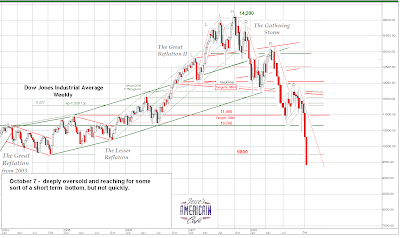 The Treasury is going to devalue the US dollar by 30 to 40 percent, or more, from here.
The Treasury is going to devalue the US dollar by 30 to 40 percent, or more, from here.
Why?
Because they have no choice. Its what you must do when you cannot selectively default by creditor and you can't pay your debt service with additional debt.
The devaluation will be coated with a minty flavored shell of verbage and G7 misdirection and government programs with lots of letters in the names.
But isn't everyone else is in the same boat?
Actually they aren't. Take a look at the current account deficits and debt service payments growth. That will tell you who is in what boat.
Remember, its a secret. Don't tell the Chinese, foreign holders of US debt, and especially the US middle class whose life savings are going to be wiped out. Isn't monetary deflation the natural outcome of a country's failure to maintain their credit and grow their debts?
Isn't monetary deflation the natural outcome of a country's failure to maintain their credit and grow their debts?
Tell it to Iceland. Want to buy some krona?
But what about Japan? I think we are going to be in a deflation where our money is worth more as we print more of it, while producing less goods in return, and our financial paper is increasingly discredited and worth less.
Excellent. Someone has to hold the bag. Welcome to the team. Have a koolaid and a cookie and take a seat over there while you wait for further processing and creative destruction.
You may also be interviewed for an upcoming documentary to be titled "Cargo Cult Economics."
P.S. Have a nice day






































